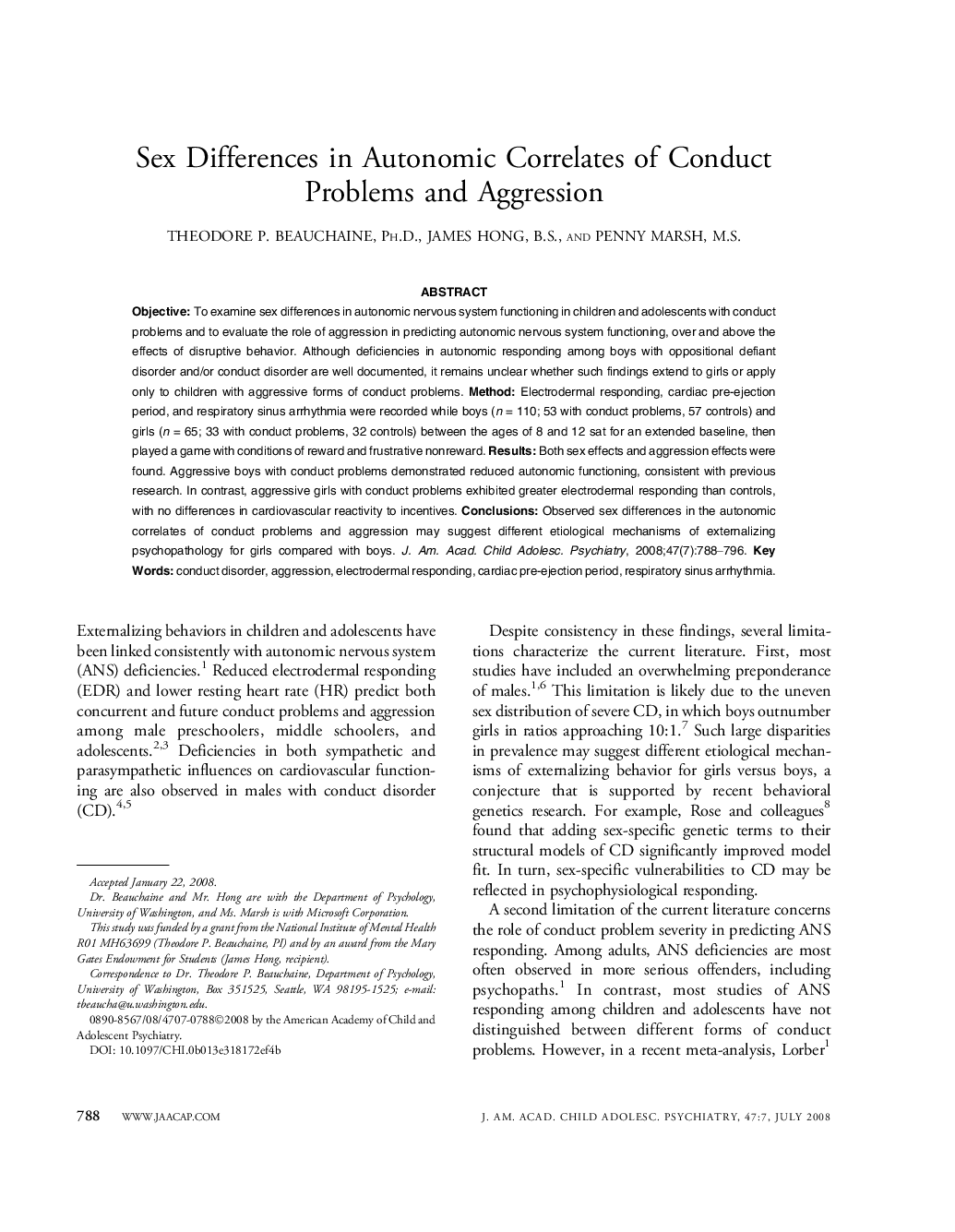| Article ID | Journal | Published Year | Pages | File Type |
|---|---|---|---|---|
| 324928 | Journal of the American Academy of Child & Adolescent Psychiatry | 2008 | 9 Pages |
ObjectiveTo examine sex differences in autonomic nervous system functioning in children and adolescents with conduct problems and to evaluate the role of aggression in predicting autonomic nervous system functioning, over and above the effects of disruptive behavior. Although deficiencies in autonomic responding among boys with oppositional defiant disorder and/or conduct disorder are well documented, it remains unclear whether such findings extend to girls or apply only to children with aggressive forms of conduct problems.MethodElectrodermal responding, cardiac pre-ejection period, and respiratory sinus arrhythmia were recorded while boys (n = 110; 53 with conduct problems, 57 controls) and girls (n = 65; 33 with conduct problems, 32 controls) between the ages of 8 and 12 sat for an extended baseline, then played a game with conditions of reward and frustrative nonreward.ResultsBoth sex effects and aggression effects were found. Aggressive boys with conduct problems demonstrated reduced autonomic functioning, consistent with previous research. In contrast, aggressive girls with conduct problems exhibited greater electrodermal responding than controls, with no differences in cardiovascular reactivity to incentives.ConclusionsObserved sex differences in the autonomic correlates of conduct problems and aggression may suggest different etiological mechanisms of externalizing psychopathology for girls compared with boys. J. Am. Acad. Child Adolesc. Psychiatry, 2008; 47(7):788–796.
